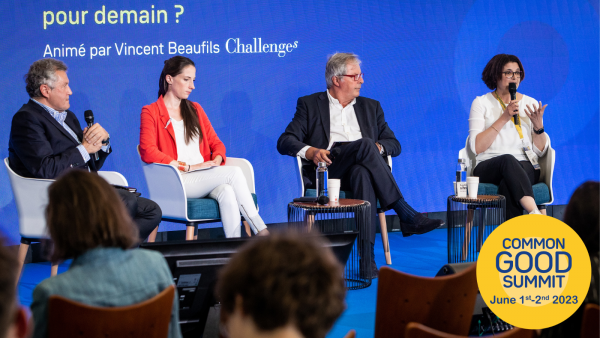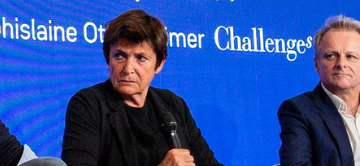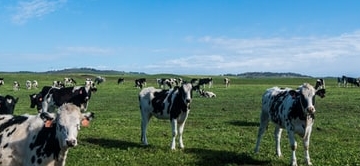This debate took place during the third edition of the Common Good Summit, organized jointly by TSE, Challenges and Les Echos-Le Parisien Evénements. On June 1 and 2, 2023, economists, economic decision-makers, representatives of public authorities and civil society came together to reflect on a central question: how can we save the common good? With over 1,300 participants and rich exchanges, this third edition confirms the importance of discussing tomorrow's issues together, from climate, mobility, food and inflation to health and artificial intelligence.
Feeding 9 billion people while respecting the planet. This is no small challenge, and it requires action from all players in the food sector. Three of them were present at the Summit of the Common Good on Monday June 1, to suggest ways forward.
"The challenge of tomorrow's food is not just to feed the world's population as a whole, it's also important to be able to offer everyone healthy food, in sufficient quantities and at an affordable cost."
For Zohra Bouamra-Mechemache, economist at TSE and researcher at Inrae, we can't meet tomorrow's food challenge by simply feeding everyone. We need to rethink the way we grow and raise food, so as to preserve the environment as a whole, whether it's soil, water resources or biodiversity.
Not to mention the fact that this approach still has to deliver a degree of economic profitability for those involved in the sector. This means adapting cultures and making transitions.
This is what the Fileg association is working towards: by federating agricultural producers in the legume sector in Occitanie. "By 2030, we need to double legume production to 200,000 hectares," explains Cyrielle Mazaleyrat, development engineer and coordinator at Fileg.
Support and assistance
Thierry Blandinières, head of Invivo, explains that the agricultural cooperative, which has become France's third-largest agri-food company, is in the process of setting up an eco-friendly wheat quotation on the Chicago market, which he sees as a means of developing an ecologically virtuous sector. He adds that a transition to lentils or peas is far less profitable, and will require support and assistance.
But for Cyrielle Mazaleyrat, it's well worth the effort, as these legumes provide protein directly to the human diet, without having to go through livestock farming, an activity that is one of the main contributors to global warming.
What remains to be done is to convince the population, which, as she points out, shuns these foods: "In 1990, we ate 7 kg per person, today we're down to 2 kg". In her opinion, a good lever would be to rely on mass catering.
- Extracts from Challenges (in French)
- Find out more about Zohra Bouamra-Mechemache





